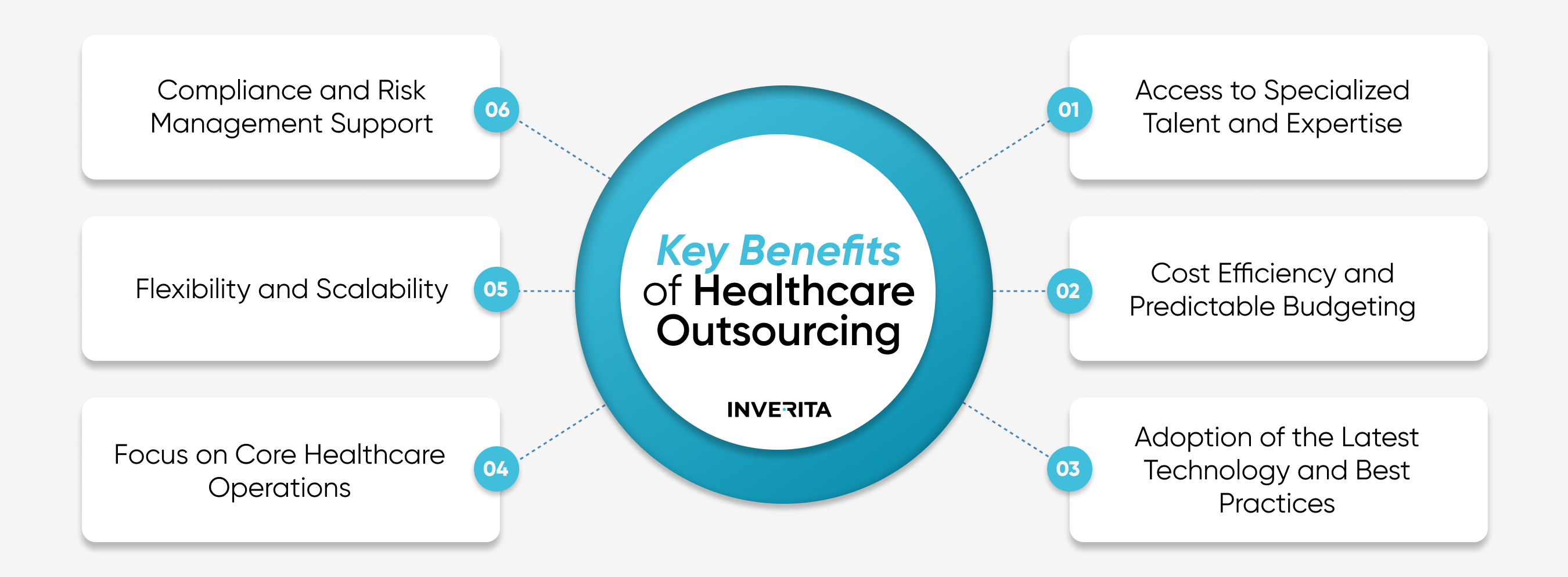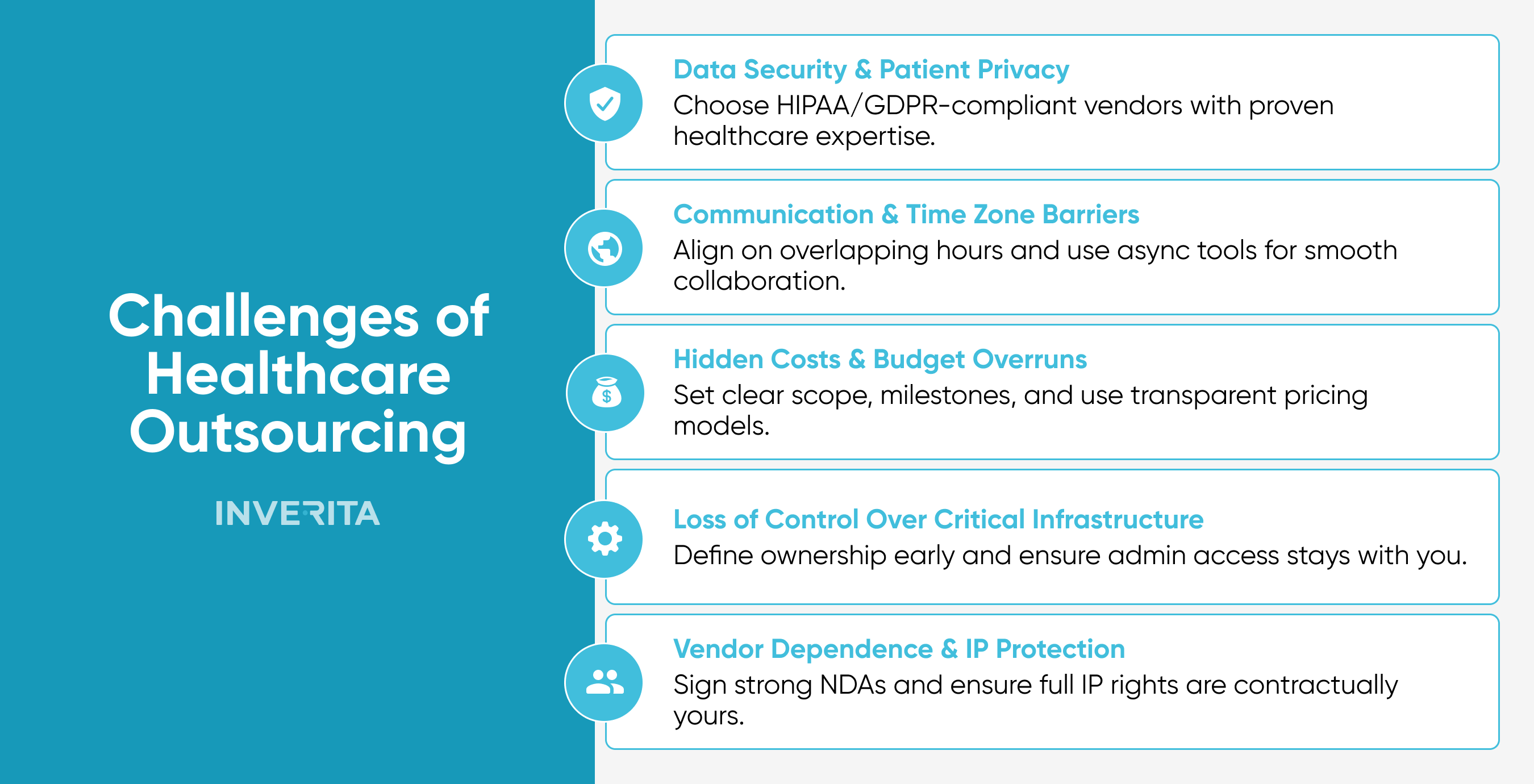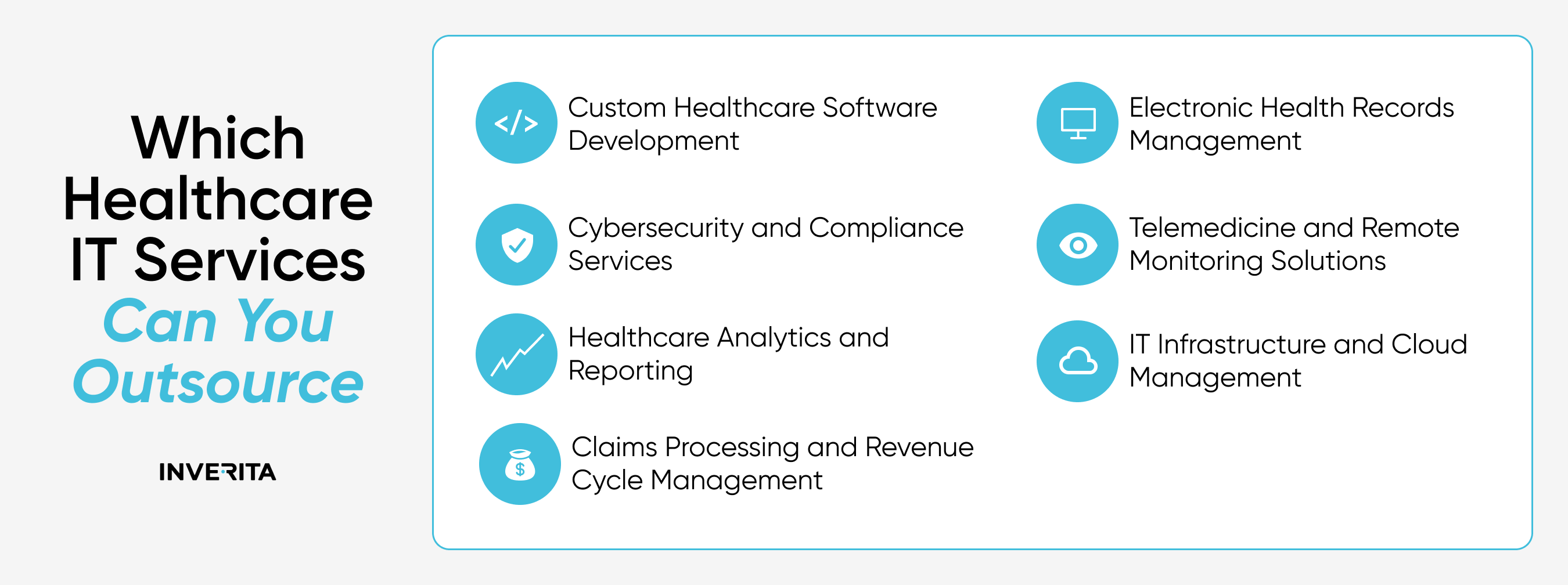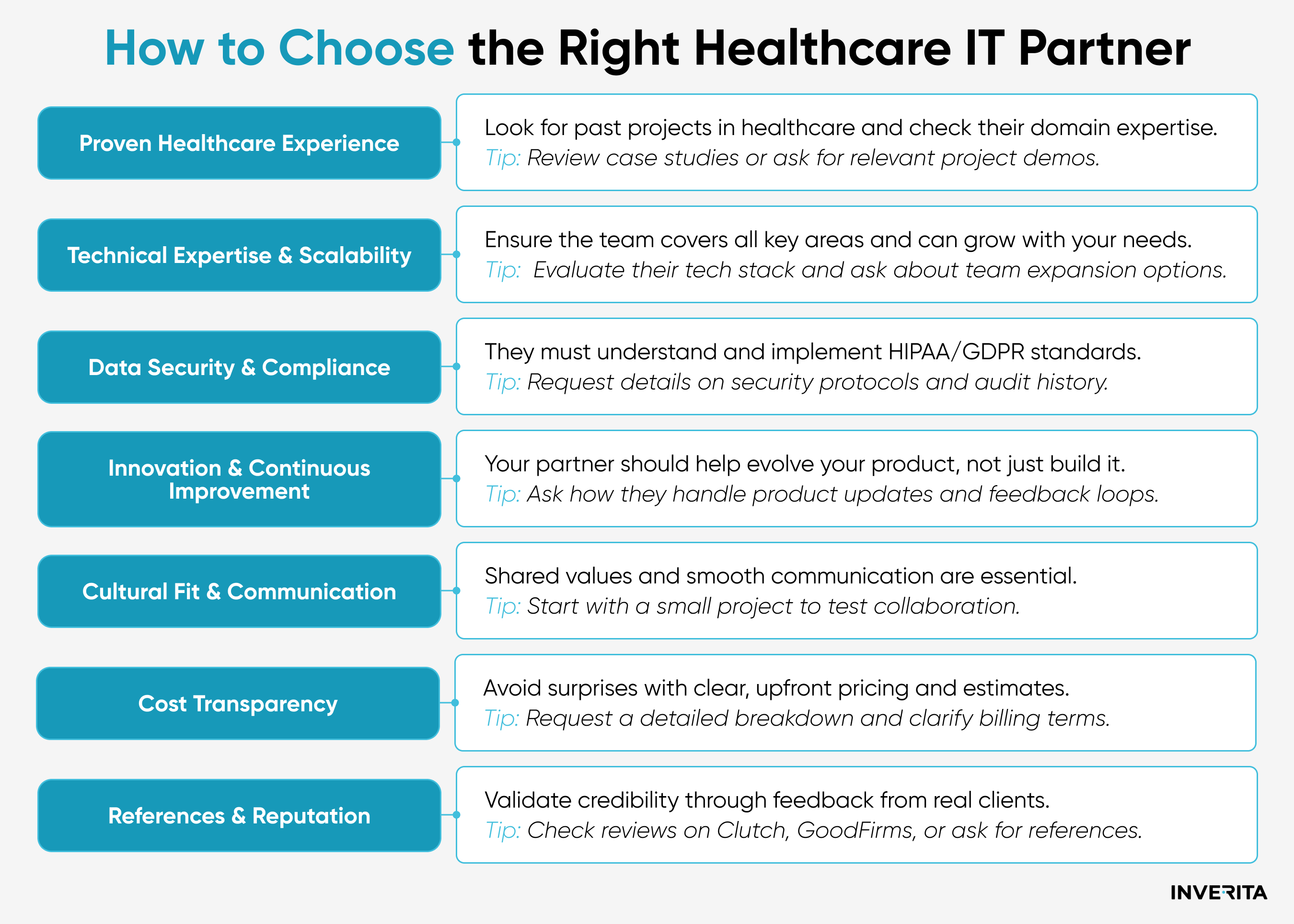The modern healthcare industry is shifting toward technology-based operations, data-driven decisions, and fully patient-centric medicine services. Today, healthcare providers increasingly rely on digital solutions, recognizing their value and transformative impact on clinical workflows.
Rising patient expectations and intense competition push medical organizations to adopt new technologies quickly. The combination of these factors drives the popularity of healthcare IT outsourcing services. Properly developed and implemented software helps restructure processes and achieve greater efficiency, accuracy, productivity, and high-quality healthcare services. That’s why more and more healthcare organizations partner with IT vendors – they ensure successful and smooth digital transformations while keeping their staff focused directly on high-quality patient care.
This article uncovers the most significant healthcare IT outsourcing pros and cons, highlights the top IT services to delegate, offers tips for choosing the right outsourcing partner, and best practices to maximize outsourcing results.
What Is Digital Healthcare IT Outsourcing?
Healthcare IT outsourcing is an effective and budget-friendly way to elevate health services and streamline workflows by integrating digital solutions. This approach allows healthcare providers to tap into advanced global expertise and hire IT teams specializing in niche services.
Hospital IT outsourcing refers to delegating tech-related tasks, services, or even entire projects to external specialists while avoiding the hassle of full-time hiring and onboarding. Such collaborations accelerate medical software implementation and benefit healthcare teams in the long run – they can allocate resources for their core tasks, having a third-party vendor continuously maintaining and updating their systems. As a result, patient care and overall service quality are taken to the next level.
Demand for outsourcing healthcare IT is rising as medical organizations seek efficient, scalable solutions to meet strict industry standards, enhance patient outcomes, and streamline clinical operations. As telemedicine, EHRs, and other digital health services become more widespread, healthcare providers partner with outsourcing teams to manage these complex systems, reduce overhead, and ensure compliance with strict regulations.









